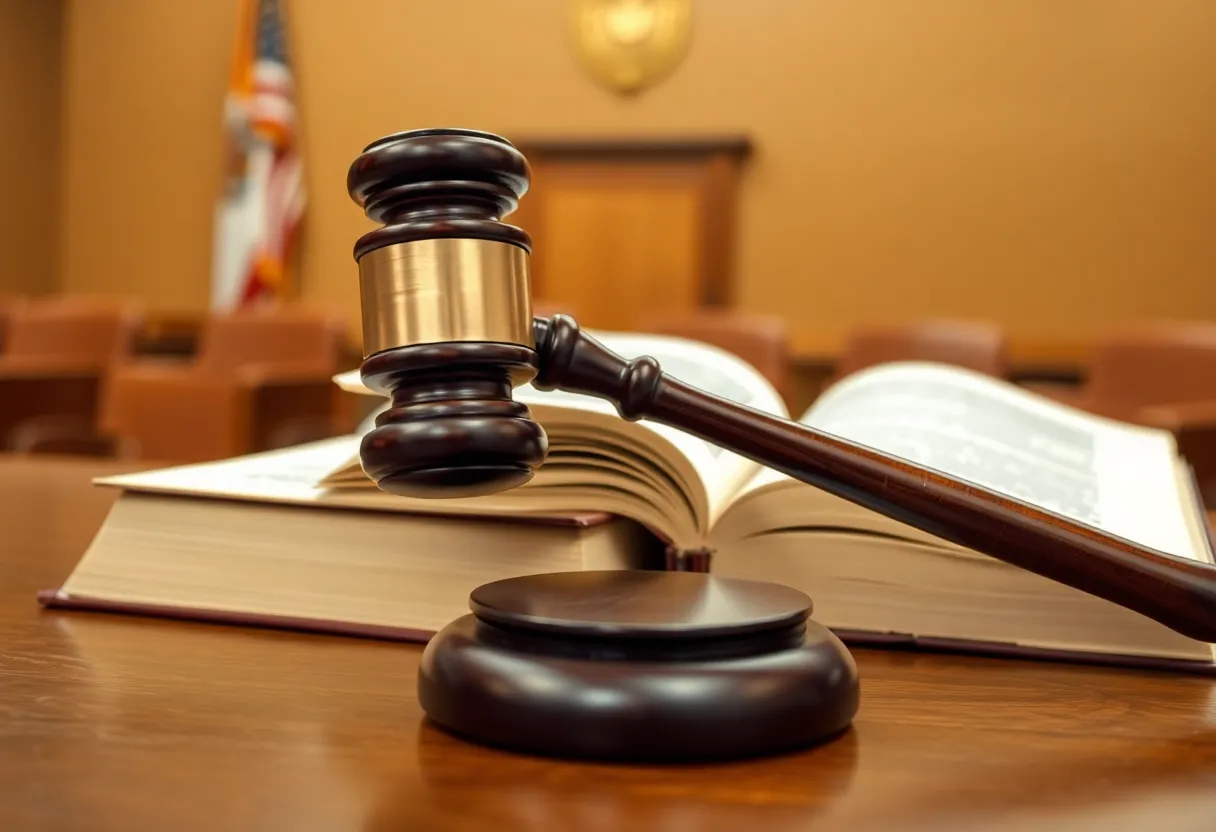News Summary
The California Supreme Court has approved adjustments to bar exam scores following significant technical issues during the February 2025 exam. This decision allows the State Bar to implement a new scoring model and utilize the Multistate Bar Exam for the upcoming July exam. Critics have raised concerns over the use of AI in exam question development and the overall integrity of the bar examination process. As the State Bar faces scrutiny, the court’s ruling aims to restore confidence among test takers in California.
California — The California Supreme Court has approved the State Bar’s proposal to adjust bar exam scores following significant disruptions during the February 2025 examination. This decision allows the State Bar to release test results for the 4,231 applicants who participated in the exam, which encountered numerous technical issues and raised questions about the integrity of some exam questions.
The court’s ruling has significant implications for test takers, as the justices directed the State Bar to adopt the Multistate Bar Exam for the multiple-choice part of the upcoming July exam. For applicants to pass the exam, they will need to achieve a raw score of 534. This score is derived from a combination of written and multiple-choice sections, each contributing equally to the total score of 700 points.
For those who sat for the troubled February 2025 exam, the passing raw score was considerably lower, set at just 420 points. The court has also permitted grading adjustments, allowing examination graders to apply psychometric imputation for candidates who answered at least 114 of the 171 scored multiple-choice questions and at least four out of six written components. This approach is meant to ensure that test takers’ scores accurately reflect their knowledge and abilities.
The controversy surrounding the February exam stemmed from the State Bar’s announcement that 29 out of the 200 questions were developed using artificial intelligence by a contracted vendor, ACS Ventures Inc. This revelation sparked criticism from legal educators who questioned the validity of using AI in constructing exam questions. Furthermore, allegations arose that some exam questions were recycled from assessments designed for first-year law students, further compounding concerns about the quality and rigor of the exam.
Participants in the February exam reported being removed from online testing platforms, experiencing significant lag times during the exam, and encountering ambiguously worded questions. These issues ultimately led to the filing of a federal lawsuit against Meazure Learning, the administrator of the exam. The technical problems during the exam were serious enough that they prompted California Senate Judiciary Chair Thomas J. Umberg to call for a thorough audit of the State Bar.
The decision by the California Supreme Court to approve adjustments to the exam scores is part of a broader response to the challenges faced during the bar examination process. Transition to the new model for the bar exam was partly motivated by a $22 million budget deficit, leading the State Bar to partner with Kaplan Exam Services to create exam materials. However, the reliance on external resources, including the integration of AI, has drawn sharp criticism from law school faculty, who argue for more sustainable and validated practices in testing future lawyers.
In defending its methods, the State Bar maintained that all exam questions underwent rigorous review by panels of content validation experts before the administration of the exam. Despite this assurance, there is a considerable push from critics for increased transparency, with calls for the State Bar to publish all 200 questions from the February exam to allow for external scrutiny.
The ongoing challenges surrounding the bar exam process highlight significant concerns regarding the maintainability of testing standards and the overall integrity of the licensing process for aspiring attorneys in California. As the State Bar prepares for the July exam, the focus will remain on addressing these issues and restoring confidence in the examination process.
Deeper Dive: News & Info About This Topic
- The New York Times: California State Bar Exam Controversy
- Wikipedia: California Bar Exam
- Bloomberg Law: California Justices Accept Bar Exam Scoring Amid AI Turmoil
- Google Search: California Bar Exam AI
- Los Angeles Times: California State Bar Used AI for Exam Questions
- Google Scholar: California Bar Exam AI
- The Guardian: California Bar Exam AI Controversy
- Encyclopedia Britannica: California Bar Exam
- Ars Technica: AI Helped Write California Bar Exam
- Google News: California Bar Exam

Author: STAFF HERE COSTA MESA WRITER
The COSTA MESA STAFF WRITER represents the experienced team at HERECostaMesa.com, your go-to source for actionable local news and information in Costa Mesa, Orange County, and beyond. Specializing in "news you can use," we cover essential topics like product reviews for personal and business needs, local business directories, politics, real estate trends, neighborhood insights, and state news affecting the area—with deep expertise drawn from years of dedicated reporting and strong community input, including local press releases and business updates. We deliver top reporting on high-value events such as the OC Fair, Concerts in the Park, and Fish Fry. Our coverage extends to key organizations like the Costa Mesa Chamber of Commerce and Boys & Girls Clubs of Central Orange Coast, plus leading businesses in retail, fashion, and technology that power the local economy such as Vans, Experian, and South Coast Plaza. As part of the broader HERE network, including HEREAnaheim.com, HEREBeverlyHills.com, HERECoronado.com, HEREHollywood.com, HEREHuntingtonBeach.com, HERELongBeach.com, HERELosAngeles.com, HEREMissionViejo.com, HERESanDiego.com, and HERESantaAna.com, we provide comprehensive, credible insights into California's dynamic landscape.


